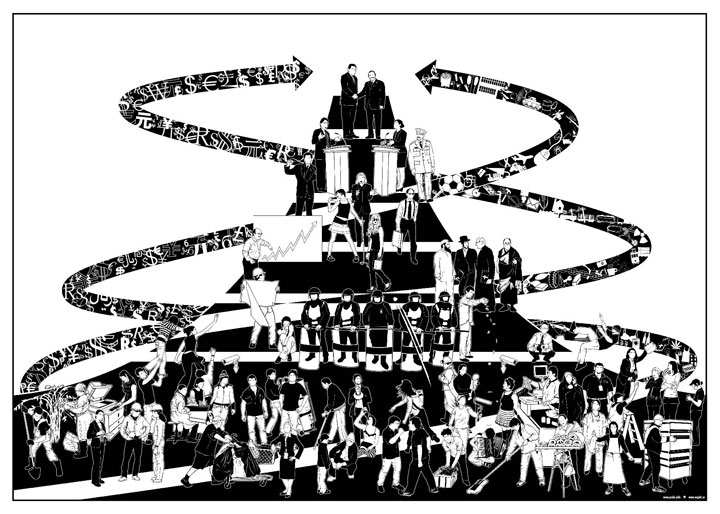American Educational Research Association
2012 Annual Meeting – Vancouver, British Columbia, Canada
Friday, April 13 – Tuesday, April 17, 2012**
***Marxian Analysis of Society, School and Education SIG***
***CALL FOR PAPERS*** [pdf]
*Why Marxism? Whose Marxism? Let’s Begin from the Beginning.*
*Rethink Class, Race and Gender Inequalities and Education*
The current global momentum is a profound paradox. On one hand, our era has
been witnessing huge and dramatic transformations propelled by the biotech
movement including genetic and biotechnological discoveries, as well
as, theelectronic revolution of communications and informationboth of
which have had a huge impact on the way knowledge has been produced
and reproduced. Despite such progress, on the other hand, global societies
have been experiencing, among other things, the shocking exacerbation (and
in some cases the return) of horrendous social evils, namely, the return of
slavery, legitimization of human genocide, new pandemics, the return of high
vulnerability to old sicknesses that seemed to have been eradicated and now
appear to be linked to new pandemics like HIV/AIDS, and naturalization of
war, the domestication of revolting social inequalities (cf. Sousa Santos,
2005), the need of a more predatory capitalism to sustain neoliberal
capitalism, the emergence of a new economy propelled by the need to fight
terror(ism) (cf. Giroux, 2011). Despite the fact that we never had a society
that produced as much knowledge as today’s society, the fact is such
production not only has been incapable of building a fairer and just
society, but also as it has just served to increase and multiply social
inequality. Such shocking paradoxes bring to the fore the vitality of
(neo)Marxist analyses, as the ‘most rigorous, comprehensive critique of
capitalism ever to be launched’ (Eagleton, 2011). The 2012 Marxian Analysis
of Society, School and Education SIG program asks scholars and educators
around the globe, profoundly committed with the struggle for social and
cognitive justice, to rethinking not only class, race, and gender
inequalities and education, but also if the reinvigoration of the
(neo)Marxist analyses and contributions to society and education implies the
need to ‘begin from the beginning’ (Zizek, 2009). We asked scholars to
critically address questions such as why (neo)Marxism and whose (neo)Marxism
is a key to rethink and understand the current global disruption of
capitalism and its implications of the daily live of teachers and students.
